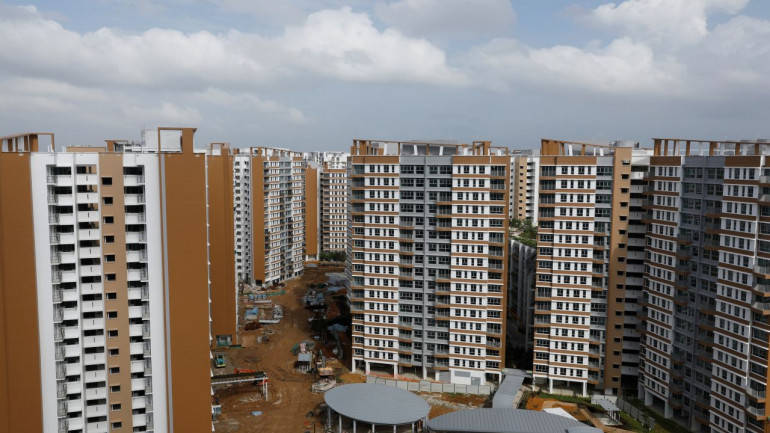Homeownership has always been and will continue to be a highly-cherished dream of most Indians but dreams alone do not sell homes. The question of why homes are not selling as quickly as they used to does not have a single answer – it is a matter of sentiment, and sentiment reacts to a number of factors.
The slowdown in the Indian residential sector is not the result of any one factor, though many would be tempted to assume that over-pricing is the main culprit. The fact is that people were buying homes when most markets were heavily and obviously over-priced. Therefore, prices are not the main reason why the Indian housing market has been under strain for so long – at least in the sense that they are unaffordable. Actually, the very fact that prices have been falling has contributed to the lack of positive sentiment. Of course, the cost of acquisition has also increased because of the imposition of GST on under-construction homes, which were once favored for their cost-effectiveness. Many developers are also willing to offer discounts or freebies to offset this burden. However, people will only buy homes when:
- They perceive that they are getting true value for money
- They have the assurance that they are investing in an appreciating asset – not a depreciating one.
The following are some of the factors which have an impact on making a purchase decision:
GST
The assumption that lower prices will cause demand to kick in is half-baked. When prices decrease, buyers cannot be sure whether they have bottomed out or will sink further. If they do reduce further, they will have invested their money in an asset that is losing rather than gaining value. The added cost of GST on under-construction homes is, understandably, not perceived as a value-addition. After all, when one puts the same property on the resale market at some point, one cannot recover the GST cost because it is not applicable to secondary sales.
Confidence
In recent years, aspiring homebuyers have been also put off purchase decisions because they lack confidence. Confidence is a by-product of enough enabling factors working well in unison. It goes for a toss when aspiring buyers feel disempowered, financially insecure, intimidated, confused and angry when unscrupulous dealings come to light, and when they hear a constant dialogue about how buyers have been taken for a ride till now.
RERA
RERA was meant to infuse some badly-needed confidence, but while it has managed to do so to some extent, its success in catalyzing fresh housing demand has been rather patchy and inconsistent. RERA is by no means a done deal and is still finding its feet in some parts of the country, even as it faces outcry about dilutions in other parts.
Layoffs
Meanwhile, there is a constant barrage of news about massive layoffs in once very secure and even lucrative sectors like IT/ITeS and the automobile industry. Job security is at an all-time low – and when people are not sure about their jobs, cost-intensive home purchases are probably the last thing on their mind.
Given all these factors, of which many are outside the power of real estate developers to influence, it is impossible to say when housing demand will come back in force in 2020.




